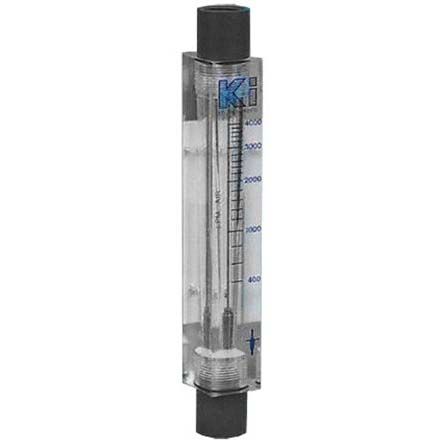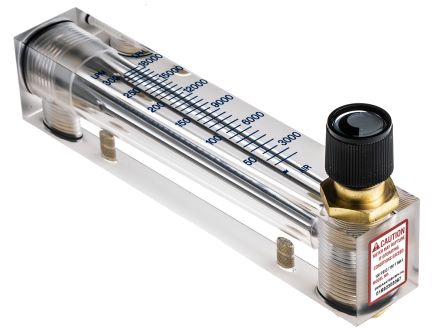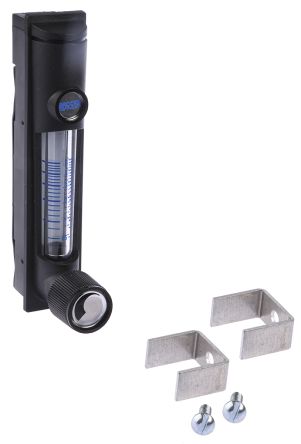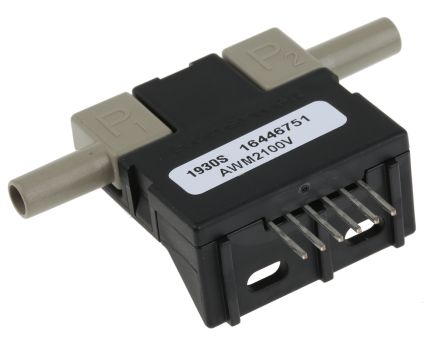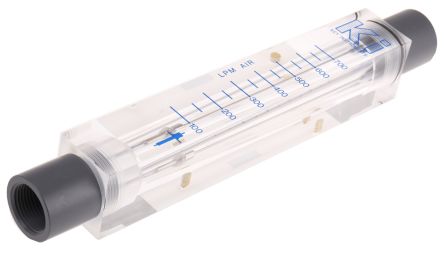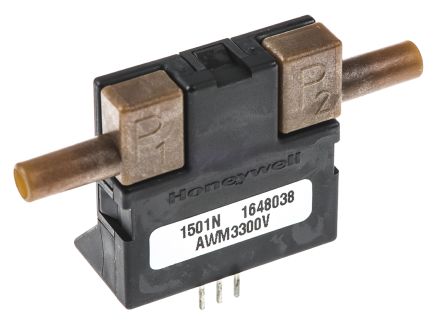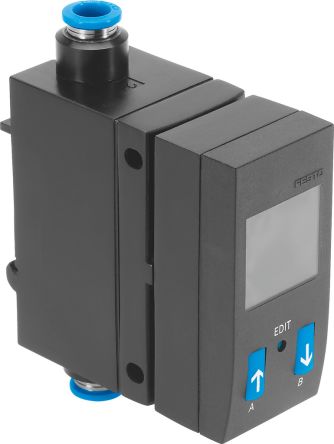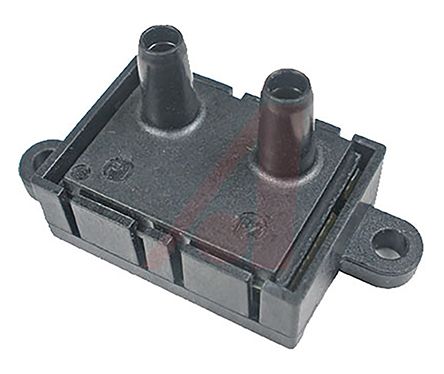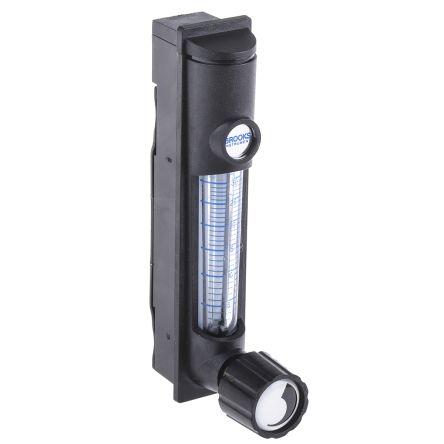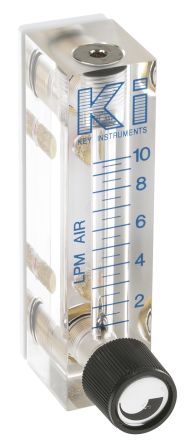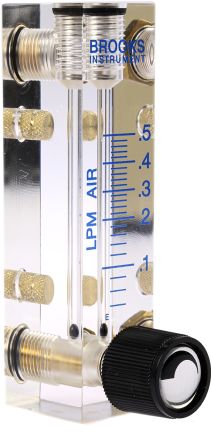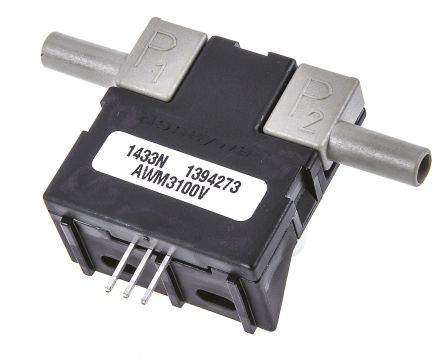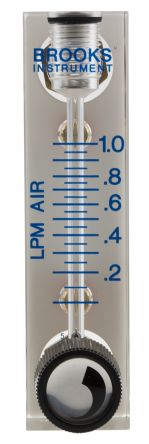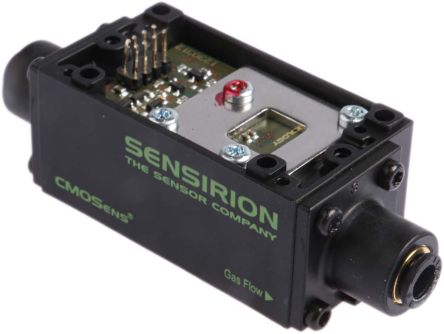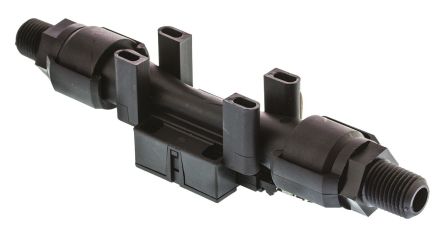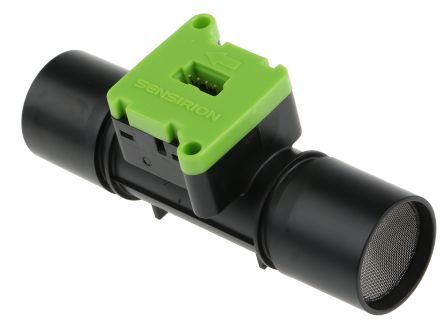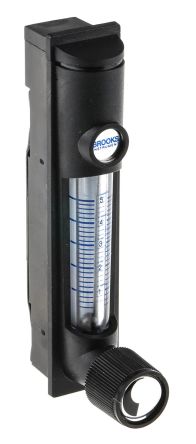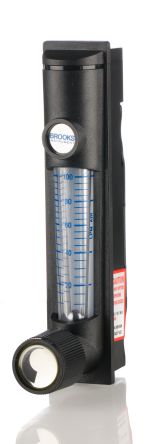- Automation & Control Gear
- Cables & Wires
- Enclosures & Server Racks
- Fuses & Circuit Breakers
- HVAC, Fans & Thermal Management
- Lighting
- Relays & Signal Conditioning
- Switches
- Batteries & Chargers
- Connectors
- Displays & Optoelectronics
- ESD Control, Cleanroom & PCB Prototyping
- Passive Components
- Power Supplies & Transformers
- Raspberry Pi, Arduino, ROCK, STEM Education & Development Tools
- Semiconductors
gas flow meter
Flow sensors are devices that help us measure the movement of fluids, like water or air, in various applications. You may have heard of them being referred to as a flow meter or flow indicator. They work like fluid detectives, detecting the flow rate and volume with certain applications to provide valuable information for controlling, monitoring, and optimising processes.
How Flow Sensor Works
Flow sensors, including liquid flow meters and flow rate sensors, detect the movement of fluids such as water, gas, or air through a system. They often use a variety of techniques to measure flow, such as turbine blades that rotate with the fluid's velocity, electromagnetic flow sensors that use electromagnetism to measure flow, or differential pressure sensors that measure variations in pressure. The flow meter captures these signals and converts them into data that reflects the flow rate, providing accurate measurements essential for monitoring and controlling fluid systems.
Regardless of the specific technology, flow sensors are essential tools for monitoring and controlling fluid systems across numerous industries, from manufacturing and agriculture to healthcare and energy.
Types of Flow Sensors
Flow sensors are available in several types, each designed with its own unique way of working. Check them out below:
- Differential Pressure Flow Sensors: These sensors create a pressure drop in the fluid and measure the resulting difference. They compare the pressure upstream and downstream of an obstruction, calculating the flow rate. They're commonly used in HVAC systems and industrial processes.
- Turbine Flow Sensors: Turbine sensors work like tiny windmills in the fluid stream. As the fluid flows, it spins the turbine, and the speed of rotation is proportional to the flow rate. These sensors are widely used in water utilities, irrigation systems, and even fuel consumption monitoring.
- Electromagnetic Flow Sensors: These sensors employ the power of electromagnetism to measure flow. A magnetic field is created perpendicular to the fluid's direction, and as the conductive fluid flows, it generates a voltage proportional to the velocity. They are unaffected by pressure or temperature changes and find applications in water treatment, chemical processes, and wastewater management.
- Ultrasonic Flow Sensors: These sensors use sound waves to detect the flow. They emit ultrasonic signals through the fluid and measure the time it takes for the waves to travel upstream and downstream. By comparing these times, they calculate the flow rate. These sensors are particularly handy for large pipes and ducts.
- Vortex Flow Sensors: Just as a whirlpool forms when water flows past an obstacle, vortex flow sensors take advantage of the "twist" in the flow. They place a bluff body in the fluid stream, and the frequency of vortices formed is directly related to the flow rate. These sensors excel in measuring gas flow and find applications in HVAC, chemical plants, and even beer brewing!
Flow sensors are the "current" stars of the measurement world, helping us formulate efficient processes, optimise resource usage, and maintain the perfect balance. With their diverse types and applications, they're certainly not "fluid" when it comes to providing valuable data.
Industrial Applications of Flow Sensors
Flow sensors are indispensable in indicating and managing the flow of liquids and gases in numerous applications, from oil and gas to food and beverage production. Below are some key industries where flow sensors are extensively used:
Oil & Gas
In the oil and gas industry, flow sensors are essential for monitoring and controlling the flow of crude oil, natural gas, and refined products. They ensure accurate measurement during extraction, transportation, and refining processes. Flow sensors help optimise production, detect leaks, and maintain site safety in pipelines and refineries.
Wastewater & Water Utilities
Wastewater treatment plants and water utilities rely heavily on flow sensors to manage the flow of water and wastewater. These sensors detect flow rates to ensure compliance with environmental regulations and efficient treatment processes. Flow data helps in optimising chemical dosing, pump control, and overall system performance.
Food & Beverage
Liquid flow sensors are critical in the food and beverage industry for maintaining product quality and consistency. They measure the flow of ingredients, ensuring precise mixing and dosing in various processes like beverage production, dairy processing, and brewing. Flow sensors also help in monitoring cleaning solutions and sanitising agents to maintain hygiene standards.
Semiconductor Manufacturing
The semiconductor industry demands high precision and cleanliness in manufacturing processes. Flow sensors are used to monitor the flow of ultrapure water, chemicals, and gases used in wafer fabrication and cleaning. These sensors ensure the integrity of sensitive processes, minimise contamination risks, and contribute to the production of high-quality semiconductor chips.
Laboratory
Flow sensors are indispensable tools in laboratories for various research and analytical applications. They measure the flow of liquids and gases in experiments, chromatography systems, and sample preparation processes. Flow sensors ensure accurate dosing, maintain consistent flow rates, and contribute to the reliability of experimental results.
For more specific products and solutions for your business, read through our industry resources here.
Frequently Asked Questions About Flow Sensors
Why Are Flow Sensors Important in the Industry?
Flow sensors, such as liquid flow meters and gas flow rate sensors, play a crucial role in various industries by providing accurate measurements of liquid or gas flow rates. These measurements, facilitated by flow meter sensors, are essential for maintaining optimal operating conditions, ensuring safety, and improving efficiency in processes such as chemical manufacturing, water treatment, and HVAC systems.
Is a Flow Sensor Analogue or Digital?
Flow sensors can come in analogue or digital forms, depending on the specific design and application requirements. Analogue flow sensors provide a continuous signal that varies with the flow rate, which can be useful for simple measurement needs. Digital flow sensors generate distinct signals or data, making them easy to integrate with digital systems.
Is a Flow Rate Sensor the Same as a Pressure Sensor?
No, a flow rate sensor and a pressure sensor are not the same. A flow rate sensor measures the volume or mass of a fluid passing through a point over a specific period, indicating the flow rate. It is used to monitor and control the movement of liquids or gases in various processes. A pressure sensor, however, measures the pressure exerted by a fluid within a system. While both sensors can be used together in systems like fluid dynamics to ensure proper operation, they measure different parameters and serve distinct purposes.
Delivery Information
Order your flow sensors and indicators, liquid flow meters, and gas flow rate sensors at RS Malaysia to enjoy same-day or next-working-day delivery. Learn more about our delivery information to know how you can take advantage of this service.
Check the air flow meter sensor prices and directly make a purchase through our website. With RS Malaysia, you can also order other sensor products such as limit switch sensors, photoelectric sensors, proximity sensors, and more.
Explore the new look of the category page
Popular Searches
Related links
- Siemens SITRANS FM Series Electromagnetic Flow Sensor MAG 3100...
- Turck FCS Series Remote Sensor Flow Sensor for Gas 1 (Water) cm/s...
- Turck BIM-UNT Series Remote Sensor Flow Sensor for Gas 1 (Water)...
- Trumeter Digital Panel Multi-Function Meter for Flow Speed, 68mm x 68mm
- Trumeter Vista Touch Series Industrial Flow Meters Flow Meter
- SMC PF3W Series Digital Flow Switch For Water Flow Sensor for...
- SMC PF3W Series Digital Flow Switch For Water Flow Sensor for...
- SM Series Magnetic Inductive Flow Meter Flow Sensor for Liquid 25 L/min Max
